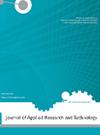Predictive models in pandemic times and their impact on the analysis of crime
Q3 Engineering
Journal of Applied Research and Technology
Pub Date : 2023-06-29
DOI:10.22201/icat.24486736e.2023.21.3.1944
引用次数: 0
Abstract
Through the descriptive analysis on the Open Data of the Costa Rican Judicial Power, alarming results are reflected in the number of complaints imposed in the Judicial Investigation Organism (OIJ), exceeding fifty thousand complaints in 2019. Based on those numbers, the objective for this research is to generate a data analysis model that allows to potentiate these statistics and to indicate in advance the regions with the most remarkable propensity to suffer crimes in the next five years, to promote the proactivity of both the citizen and the police to be alerted and to avoid upcoming crimes. Statistical prediction models are used to prove mathematical methods applicable to the data obtained and their behavior during 2015-2019. The analysis reflects the need to apply the simple linear regression algorithm to the developed solution available to all Costa Ricans on the Tableau Public website. The results show pessimistic predictions for the country, especially in the Greater Metropolitan Area (GAM); the behavior of crimes will significantly impact this area, which indicates the need to establish police strengthening programs improvements in education and employment to counter the potential crimes projected for the next five years流行病时期的预测模型及其对犯罪分析的影响
通过对哥斯达黎加司法权公开数据的描述性分析,令人震惊的结果反映在司法调查机构(OIJ)提出的投诉数量上,2019年超过5万起投诉。基于这些数字,本研究的目标是生成一个数据分析模型,该模型可以增强这些统计数据,并提前指出未来五年内最容易遭受犯罪的地区,从而提高公民和警察的主动性,提高警惕,避免即将发生的犯罪。统计预测模型用于证明2015-2019年期间获得的数据及其行为适用的数学方法。分析表明,有必要将简单的线性回归算法应用于Tableau公共网站上所有哥斯达黎加人都可获得的已开发的解决方案。结果显示对该国,特别是在大都市区(GAM)的悲观预测;犯罪行为将对该地区产生重大影响,这表明需要建立警察加强计划,改善教育和就业,以应对未来五年预计的潜在犯罪
本文章由计算机程序翻译,如有差异,请以英文原文为准。
求助全文
约1分钟内获得全文
求助全文
来源期刊

Journal of Applied Research and Technology
工程技术-工程:电子与电气
CiteScore
1.50
自引率
0.00%
发文量
0
审稿时长
6-12 weeks
期刊介绍:
The Journal of Applied Research and Technology (JART) is a bimonthly open access journal that publishes papers on innovative applications, development of new technologies and efficient solutions in engineering, computing and scientific research. JART publishes manuscripts describing original research, with significant results based on experimental, theoretical and numerical work.
The journal does not charge for submission, processing, publication of manuscripts or for color reproduction of photographs.
JART classifies research into the following main fields:
-Material Science:
Biomaterials, carbon, ceramics, composite, metals, polymers, thin films, functional materials and semiconductors.
-Computer Science:
Computer graphics and visualization, programming, human-computer interaction, neural networks, image processing and software engineering.
-Industrial Engineering:
Operations research, systems engineering, management science, complex systems and cybernetics applications and information technologies
-Electronic Engineering:
Solid-state physics, radio engineering, telecommunications, control systems, signal processing, power electronics, electronic devices and circuits and automation.
-Instrumentation engineering and science:
Measurement devices (pressure, temperature, flow, voltage, frequency etc.), precision engineering, medical devices, instrumentation for education (devices and software), sensor technology, mechatronics and robotics.
 求助内容:
求助内容: 应助结果提醒方式:
应助结果提醒方式:


